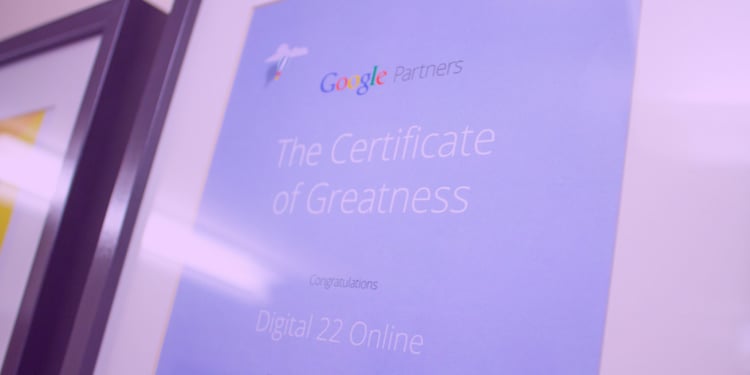What You Can Learn From Big Brands Pulling Out Of Google Advertising
A slew of massive brands and the leading advertising agencies in the world are taking a stand against Google. Some of the biggest companies around - HSBC, McDonald's, L'Oreal, Audi and the BBC, to name just five - have withdrawn advertising spend away from Google.
Their ads will no longer appear on the various Google ad networks.
Many more are threatening to do so unless Google makes a better job of fixing the problem. Following the domino effect of brands pulling away from Google ads over the past week, many other big agencies, including WPP (the largest ad firm in the world), have said they are speaking to their clients to see if they too want to cease advertising on the platform.
Why Are Big Brands Pulling Away From Google Advertising?
These brands and their advertising agencies are concerned about the way Google allows paid ads to appear alongside inappropriate content.
For example, paid ads are appearing on YouTube channels which showcase content which can be politely described as 'unsavoury'. The Guardian reported that experts think extremists have made £250,000 from adverts for household names appearing alongside their content.
The problems have come about because there is 400+ hours worth of content uploaded to YouTube every minute. Google (the YouTube owners) simply cannot check this content quick enough to police it.
Ads will still appear alongside yet to be vetted content because advertisers are paying to appear in front of certain users - rather than on certain pieces of content or specific sites.
You could therefore argue Google can't help it if User X (who meets your buyer persona characteristics) chooses to watch the latest Alt-Right video on YouTube before it's tagged as such by Google and they stop your ad appearing there.
But, on the other hand, if Google is prepared to take considerable ad spend from companies, they should be prepared to properly vet where ads will be appearing and alongside what type of content. They're saying 'enough is enough' and Google needs to sort out this problem.
Which Brands And Agencies Have Moved Away From Advertising On Google?
- Havas, the French advertising agency, who represent Dominos, Emirates, the BBC, O2, EDF, Royal Mail and more have suspended use of Google Display Network and YouTube adverts in the UK. They spend £175m on digital advertising in the UK annually.
- McDonald's, L'Oreal, Audi, Sainsbury's, The Guardian, Argos, the UK Government, Channel 4, Transport for London, the Financial Conduct Authority, HSBC, Lloyds and the Royal Bank of Scotland have all ceased advertising on Google. Tesco has "paused" spending on YouTube.
- Vodafone, Sky and Barclays are reportedly considering to withdraw spending. Read more here.
- Saatchi & Saatchi chairman and chief strategy officer, Richard Huntington, said Google has allowed an environment to emerge where they'd "forgotten the value of context".
- WPP, the largest advertising firm in the world, hasn't blacklisted Google but called out Google and Facebook (the two biggest places for digital advertising by far) to improve their "lack of responsibility". Publicis Groupe is also reviewing its relationship with Google.
What Has Google Said?
Ronan Harris, the Managing Director of Google UK, has released a short statement stating that the company "can and must do more". Speaking at Advertising Week Europe conference, he has also apologised and iterated that Google "must do more".
In his statement, he said that Google "heard from [their] advertisers and agencies loud and clear" and will be looking into more robust ways to stop advertiser's content appearing next to controversial content.
He also subtly points out that advertisers need to make best use of settings like topic exclusions and site category exclusions.
But Harris did announce that the tech giant will be making changes in the coming weeks to improve the ways in which brands can control where their ads will and won't appear.
Not surprising when you look at the size of the companies who have stopped using Google Display Network and YouTube ads.
Advertising Week Europe, where Mark Howe, head of Google's agency business in Europe, will also be speaking.
And other Google executives will be facing a second round of interrogation from a UK government committee during the same week. Yvette Cooper, chair of the committee, accused Google of "profiting from hatred".
What Can You Learn From All This?
All this highlights the real importance of a few key things. Remember the when it comes to your paid advertising efforts:
- A big budget doesn't ensure success. Even some of the biggest companies and advertisers in the world can still fall foul of the way PPC and Display Advertising works.
- Make full and proper use of all the options and settings. You need to make sure you exclude your content from appearing alongside potentially harmful content. You also need to properly utilise negative keywords.
- Constantly manage and monitor your channels. So that you can quickly react to any problems which arise.
- Consider if Display Network is right for you. Remember, Display Advertising is persona based and matched to user behaviour rather than intent. Demographics can only go so far, so always monitor placement reports.
- Maybe concentrate on Search. You can minimise the risks by concentrating on getting a full grip on advertising across Search Network instead.
Want To Improve Your Own Paid Advertising?
Real Growth. Real Impact.
HubSpot's Spring Spotlight 2025 was not what we expected
The Power of Community in Marketing
The Return of Human Marketing in an Automated Age | Avidly Talks
How to make change projects a success - Change management tactics
How to prompt AI for great creative ideas
The Profitable Bond: Unlocking Sales Success through Stronger Customer Relationships with Director of Marketing Johanna Sjölin
HubSpot AI - Explain it to me like I'm 5
See why enterprises chooseAvidly
Let’s build your HubSpot success story
Compelling final call to action - with accompanying link to Contact page








